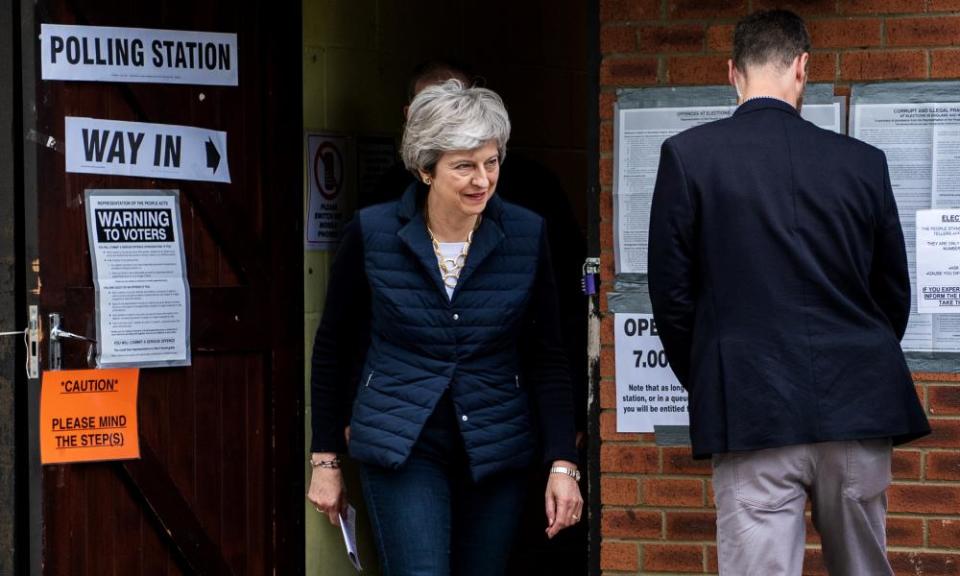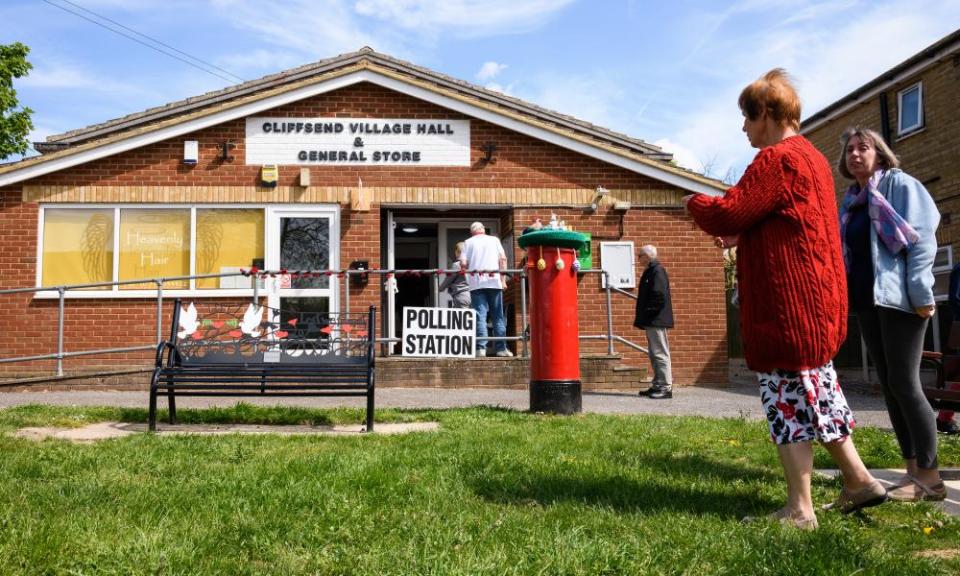Tories brace for losses in local elections amid low voter turnout

The Conservatives were braced for sweeping losses in local council elections on Friday as party sources predicted anger at the state of national politics and the Brexit impasse would cost them seats across England.
As polls closed on Thursday night, the Lib Dems were predicted to have the best night and hoped to take more seats than expected in Tory-facing areas, perhaps up to 500 in total according to some projections.
The Lib Dems were hopeful of taking councils in St Albans in Hertfordshire and the Vale of the White Horse in Oxfordshire, a council where it holds just nine seats.
“A strong Liberal Democrat ground campaign and a Brexit backlash mean we are going to do serious damage to the Tories,” one party source said. However, the Lib Dems are starting from a historically low base after a catastrophic the last time these in 2015, the last time the seats were contested.
Early councils to declare included Sunderland, Chorley and Halton, all Labour holds and Broxborne and Havant, held by the Conservatives.
Related: Local elections 2019 results: Tories braced for losses as votes are counted – live news
In Sunderland, Labour had lost nine seats by 1am though locally the party has suffered because of a councillor’s conviction for child abuse.
Labour suffered an early disappointment in Swindon, where it had hoped to tip the balance to no-overall control, in a council the Conservatives have held since 2003.
A crucial result came in a ward engulfed in a bitter row after a councillor quit the party to stand as an independent in protest at Jeremy Corbyn’s leadership. The seat fell to the Conservatives, whose candidate beat Labour’s replacement, Kate Linnegar, who is also the Labour parliamentary candidate.
“These are a tough set of elections in predominantly shire and rural areas that traditionally favour the Tories, and the mess the government has made of the Brexit negotiations will have hit turnout,” one Labour source said. “But our message of investment in our communities and public services has been well received on the doorstep.”
In total, more than 8,000 seats are up for grabs on 248 English councils and all 11 Northern Irish councils, plus six mayoral posts.

Theresa May after voting in her Maidenhead constituency on Thursday.Photograph: Chris J Ratcliffe/Getty Images
Jonathan Carr-West, the chief executive of the Local Government Information Unit, said turnout could be expected to be as low as a third of the electorate, in a year when polling day does not coincide with another major election.
“However, it is difficult to tell how much election fatigue from the last two years will impact the results,” he said. “Will the fallout of Brexit drive people to the polls? We are hearing that a lot of voters are staying home, which could be bad news for the Conservatives.”
The shadow chancellor, John McDonnell, said it was natural for voters to feel disappointed with the current state of politics. “I agree, I can’t blame them,” he told Sky News.
“It’s frustrating because the Brexit issue has clouded all the other issues. I’d rather people on a local election were voting on how their local council performed … often you will have a hard-working local councillor doing their best knocked out by what’s happening in the national politics.”
Several Labour sources have suggested the Tories may have exaggerated the extent of their expected losses in order to manage expectations.
They caution that their average lead in national polls is around 3% – which would lead to more modest gains and that elections are taking place in areas where Labour would not traditionally make huge inroads.
“We’d consider it a good night if we took Trafford and Calderdale,” one Labour source said. “It would build on solid results from last year and Jeremy Corbyn was in Calderdale campaigning a couple weeks ago. Winning Trafford would mean we were taking control of the council for the first time in 15 years and no one has held a majority in Calderdale for 20 years.”

Voters and party officials relax in the sunshine in Cliffsend, Kent.Photograph: Leon Neal/Getty Images
The Lib Dem leader, Vince Cable, said the elections were a chance to “send a message to the parties who brought us Brexit” as well as a vote for stronger local services.
The main goal is to show the party can make more gains than Labour, made easier by the demographics of the seats up for grabs. Its biggest ambition would be to gain control of Chelmsford council and the party also has hopes pinned on Winchester, North Devon and North Norfolk.
The Tory peer Robert Hayward, a leading polling analyst, has said the Conservatives can expect to lose 800 or more seats as voters punish Theresa May’s administration for the Brexit impasse.
More than 100 English councils will count their results overnight and are expected to declare before 6am on Friday, with the remaining 140 results scheduled to come in throughout Friday. Northern Ireland councils are expecting to take longer.

 Yahoo News
Yahoo News 
